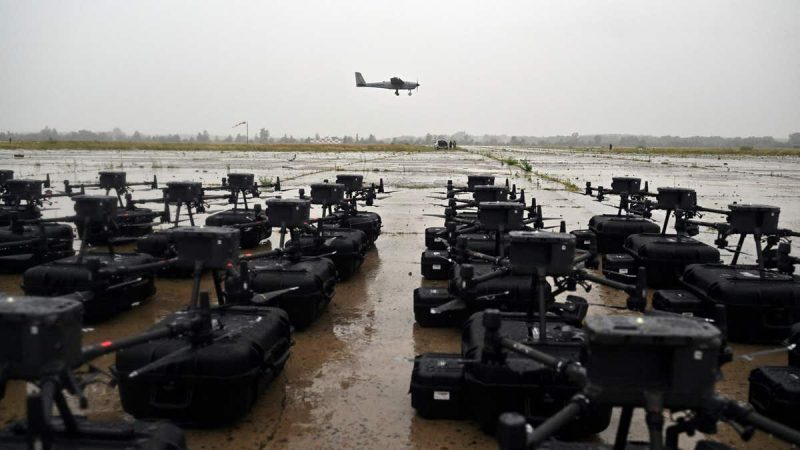The landscape of modern warfare has been rapidly evolving with the advancement of technology. One of the most significant developments in this field is the increasing use of drones. These unmanned aerial vehicles have revolutionized the way military operations are conducted, allowing for precision strikes and surveillance on a scale never seen before. As a result, the United States and other countries are scrambling to adapt to the new realities of warfare shaped by drones.
One of the key advantages of drones is their ability to carry out missions with minimal risk to human personnel. By deploying drones for reconnaissance or strike missions, military forces can gather valuable intelligence and target enemy positions without putting soldiers in harm’s way. This has led to a significant shift in the way armed conflicts are fought, with drones playing an increasingly central role in military operations.
The proliferation of drones has also raised concerns about the ethical and legal implications of their use in warfare. The ability of drones to strike targets with pinpoint accuracy has led to debate about the potential for misuse and civilian casualties. There have been instances where drone strikes have resulted in unintended civilian deaths, raising questions about the ethics of using this technology in combat situations.
Furthermore, the rise of drones has blurred the lines between traditional warfare and asymmetric warfare. Non-state actors and terrorist organizations have also begun to harness the capabilities of drones for their own purposes, posing a new set of challenges for national security forces. The threat of drones being used for terrorist attacks or other nefarious activities has prompted governments to develop countermeasures to protect against these potential threats.
In response to the changing landscape of war shaped by drones, the United States has invested heavily in developing new technologies and strategies to maintain its military superiority. This includes the development of advanced drone systems, as well as the integration of artificial intelligence and autonomous systems to enhance the capabilities of military forces.
Overall, the increasing use of drones in modern warfare represents a paradigm shift in the way conflicts are fought and won. While drones offer significant advantages in terms of precision and reduced risk to personnel, their use also raises important ethical and legal questions. As countries around the world grapple with the implications of this new technology, it is clear that the future of warfare will be shaped by drones in ways that we are only beginning to understand.

